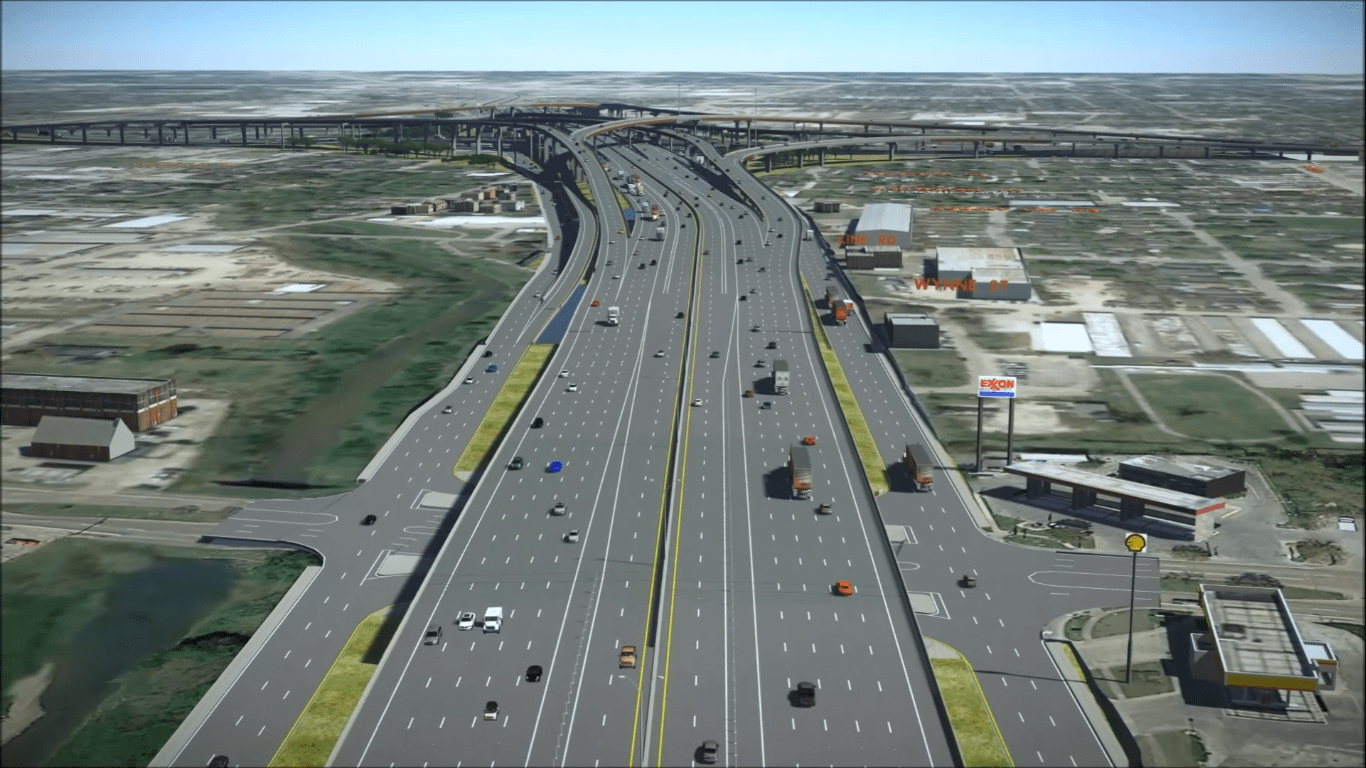In the fifth edition of the landmark "Highway Boondoggles" report, Gideon Weissman of Frontier Group and Matthew Casale of U.S. PIRG Education Fund deliver a stark warning about the billions of dollars states spend on unnecessary highways that fracture our cities, deprive transit of scarce funds, and pollute our environment. Below is a summary. Check back for each of nine installments detailing case studies of these harmful roadways.
America's car-dependent transportation system is dangerous, harms our communities, and is the leading source of global-warming pollution. America needs to invest in healthier, sustainable transportation. Yet, year after year, state and local governments propose spending billions on new or expanded highways that often do little to reduce congestion while diverting scarce funding from infrastructure repairs and transportation priorities. Highway Boondoggles 5 finds nine projects slated to cost a total of $25 billion that will harm communities and the environment while likely failing to achieve transportation goals.
Highway expansion costs billions, driving agencies further into debt, while failing to address our long-term transportation challenges.
Expansions are expensive.
- In 2012 (the latest year for which data is available) federal, state and local governments spent $27.2 billion on highway-expansion projects – sucking money from road repair, transit, and other needs.
- From 2008 to 2015, highway debt nearly doubled, from $111 billion to $217 billion.
- New roadway is costly to maintain. The average lane mile costs $24,000 per year to keep in good repair.2
Expansion doesn’t solve congestion.
- Expanding a highway sets off decisions that can lead to the highway becoming congested again. Since 1980, the nation has added more than 800,000 lane-miles of highway – paving more than 1,500 square miles – yet congestion is worse than in the early 1980s.
Expansion damages the environment and our communities.
- Highway expansion fuels more driving and climate change. In 2017, transportation was America’s number-one source of global-warming pollution.
Highway expansion can also force the relocation of homes and businesses, widening “dead zones” alongside highways, severing street connections for pedestrians and cars, and reducing the tax base.
A look back at five projects from past reports shows the consequences of boondoggle projects and the benefits of rejecting them.
- In 2018, local groups stopped a plan to add toll lanes along I-275 through a neighborhood in Tampa Bay, Fla. Now, the community is thriving, and even reducing traffic capacity on local roads to improve walking and biking.
- After years of devoting scarce dollars to unnecessary roads, Ohio found itself in a deep budget hole. Even with new fees and taxes, the state is falling billions short on fixing aging roads and funding transit.
- For years, Wisconsin’s reckless highway spending strained budgets. But in 2018, then-governor Scott Walker cancelled a boondoggle project and announced his support for a “fix-it-first” spending strategy, dedicating modest new funding for transit and local infrastructure maintenance.
- The Dallas Trinity Parkway would have run alongside the Trinity River. Local opposition stopped the project – and now Dallas is planning parks and open spaces.
- Before the closure of Seattle’s Alaskan Way Viaduct highway, critics suggested that the wait until the opening of an expensive highway would see horrible commutes and traffic jams. Instead, most traffic melted away.
Federal, state and local governments should stop or downsize unnecessary or low-priority highway projects. Policy-makers should:
- Invest in solutions that reduce the need for costly and disruptive highway-expansion projects. Public transportation, changes in land-use policy, road-pricing measures, and technology can help drivers avoid peak-time traffic.
- Adopt fix-it-first policies that reorient funding from newer highways toward repair of existing roads, bridges and transit.
- Use the latest transportation data and require full cost-benefit comparisons, including future maintenance, to evaluate all proposed and expanded highways.
- Give priority funding to projects that reduce growth in vehicle miles traveled.
- Invest in better research and data collection to track shifts in how people travel.
States spend billions on new or expanded highways that fail to address transportation problems and that create problems for communities and the environment.
This year's boondoggles projects include:
- Complete 540; North Carolina; $2.2 billion: North Carolina’s plan to complete a highway around Raleigh would generate sprawl while destroying wetlands.
- North Houston Highway Improvement Project; Texas; $7+ billion: This project would displace residents and destroy businesses, while sucking billions from transportation priorities.
- High Desert Freeway; California; $8 billion: L.A. County’s first new highway in 25 years would lead to more driving, pollution and sprawl.
- I-75 Widening; Michigan; $1 billion: A needless widening project would exacerbate sprawl and harm communities.
- Tri-State Tollway Widening; Illinois; $4 billion: The Tri-State Tollway outside Chicago has been widened twice yet suffers from heavy traffic. The Illinois Tollway still is moving forward with a $4 billion expansion.
- “Connecting Miami” Widening Project; Florida; $802 million: Florida is widening I-395 and SR836 in Miami, highways that divide communities. Local groups have identified better ways to benefit neighborhoods, including improving transit or even converting I-395 to a boulevard.
- I-83 Widening; Pennsylvania; $300 million: Pennsylvania touts the widening as a way to improve traffic flow, but documents show that congestion is not a problem and that resources would be better spent on reducing crashes and accident response.
- I-5 Rose Quarter Widening; Oregon; $450 million: In Portland, a highway project would constitute a step backward and would likely fail to improve safety compared with other investment strategies.
- Interstate 81 Widening; Virginia; $2.2 billion: Virginia argues the widening is necessary for safety, yet recently increased speed limits along the route. Operational improvements would be a cheaper and more effective way to improve safety.
Check back at StreestblogUSA all week for detailed stories on each of the above boondoggles.






